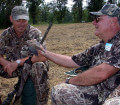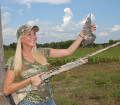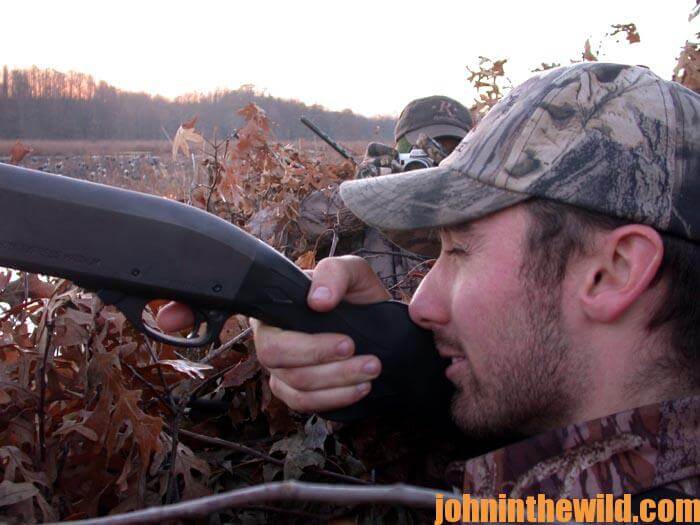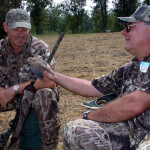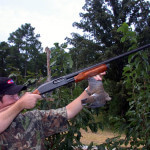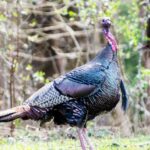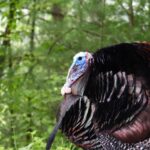John’s Note: Very few things in life come easy. This adage is especially true for the urban dover. To find a good hunting site close to home requires hours of research, a considerable amount of gasoline for reconnoitering trips and many phone calls, but it can be done.
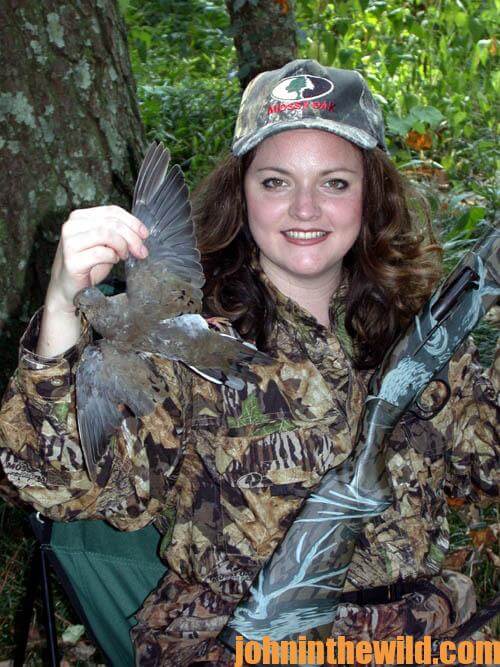 The best place to start to locate urban dove-hunting sites is by contacting the conservation officer in your county.
The best place to start to locate urban dove-hunting sites is by contacting the conservation officer in your county.
In most instances, he will know the areas on the edges of towns where you can find open land suitable for dove hunting. Also, more than likely, he’ll know the property owners. Probably he’ll tell you can’t hunt those sites because the landowner never has given anyone permission to hunt. Usually landowners don’t give urban dwellers permission to dove hunt on their lands for several reasons including …
* no one has asked,
* he doesn’t know he has doves on his property,
* he has a concern for the safety of his equipment and personnel and
* he doesn’t want to disturb his neighbors with shotguns going off.
All these are legitimate reasons for not granting permission to hunt private lands near a city. However, a good salesman and/or a knowledgeable hunter often can overcome all these objections and obtain permission to hunt where no one else can. Often within large corporations and companies is a closet dove hunter. When a man puts on a coat and tie, although he may be a staunch hunter, he looks like the rest of the men in suburbia and determining his outdoor leanings is hard. However, if you talk to enough people within the company that owns the land you want to hunt, often you’ll find an outdoorsman in the right position to open the gate for you — especially if you explain to him that you hope he’ll join you on a hunting trip.
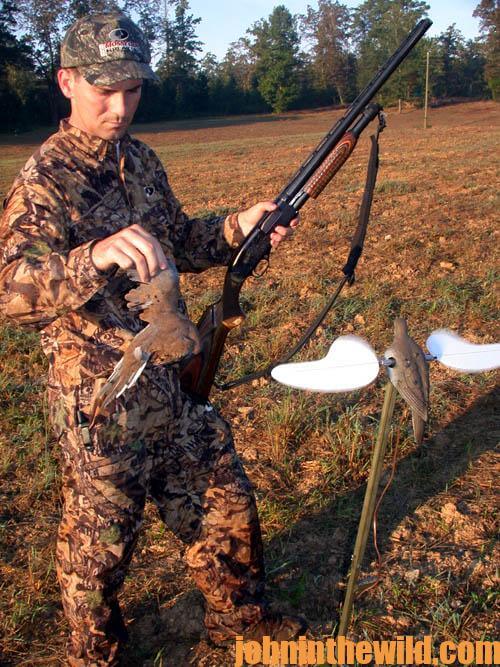 Another key factor in acquiring an urban dove site to hunt is to explain that you will not open the gates to the general public to hunt, you will be totally in charge and responsible for all the people who hunt with you, and at no time will you have more than six or eight people hunting on any given day.
Another key factor in acquiring an urban dove site to hunt is to explain that you will not open the gates to the general public to hunt, you will be totally in charge and responsible for all the people who hunt with you, and at no time will you have more than six or eight people hunting on any given day.
Always offer to call and obtain permission two or three days in advance of when you want to hunt. Treat the landowner’s property as though it is your great grandmother’s prize china glass egg that has been passed down through the family for 20-generations, and your sole responsibility is to prevent any harm from coming to it.
Check with state departments of conservation about any open lands or underutilized lands close to town.
Many times utlity companies may have right-of-ways that can be hunted or leased and crops planted for doves to make a dove hot spot. Several years ago, I leased land from a major steel company under a right-of-way. I had about three acres of land where crops were planted that brought in doves. This right-of-way was less than five minutes from my house, was behind a locked gate and provided excellent dove hunting for me and my family for several years.
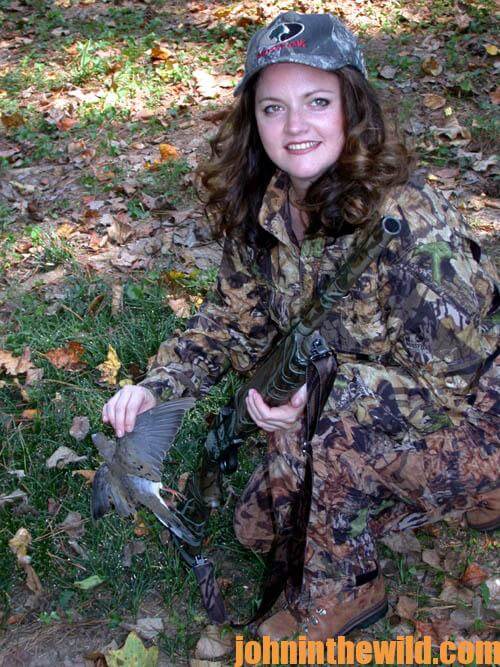 Ask the U.S. Forest Service about forest lands close to home that can be hunted. Or, you may discover a farmer or a landowner who has a small patch of ground where crops can be planted for doves. If you’re lucky, you may locate an area you can hunt that doves are already utilizing. Put a compass on a map on the spot where your house is, and draw a 50-mile circle around your house. Then begin to research and study land-ownership patterns and dove-movement patterns. More than likely, you’ll be able to find an urban dove hot spot within some few minutes of your office. The key to finding better doving close to home is to be like my brother Archie — resourceful and determined to find a place where you can hunt after work. The opportunities are limitless around most urban areas, and often the doves are plentiful. From now on, my family and I will be urban doving.
Ask the U.S. Forest Service about forest lands close to home that can be hunted. Or, you may discover a farmer or a landowner who has a small patch of ground where crops can be planted for doves. If you’re lucky, you may locate an area you can hunt that doves are already utilizing. Put a compass on a map on the spot where your house is, and draw a 50-mile circle around your house. Then begin to research and study land-ownership patterns and dove-movement patterns. More than likely, you’ll be able to find an urban dove hot spot within some few minutes of your office. The key to finding better doving close to home is to be like my brother Archie — resourceful and determined to find a place where you can hunt after work. The opportunities are limitless around most urban areas, and often the doves are plentiful. From now on, my family and I will be urban doving.

